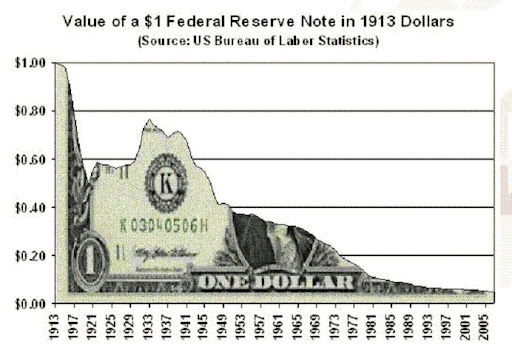
The Federal Reserve was created by legislative act in an excercise of legislative power. Their is nothing unconstitutional about the legislature creating the federal reserve.
The Federal Reserve and it’s components are all audited by independent audit organizations, most if not all by Deloitte Touche. Audit reports of each of the 9 federal reserve banks are available online.
In addition there is an inspector general that performs internal audits.
Congress exempted the Federal Reserve from congressional audits to protect their activities from being political footballs, especially during times of crisis. But that they are not subject to congressional audits, does not mean that they are not subject to audits. They are subject to both internal and external audits.
The Federal Reserve was created by legislative act in an excercise of legislative power. Their is nothing unconstitutional about the legislature creating the federal reserve.
True. The Fed, Fannie, Freddie and a host of other legal entities were and can be created by Congress.
The Federal Reserve and it’s components are all audited by independent audit organizations, most if not all by Deloitte Touche. Audit reports of each of the 9 federal reserve banks are available online.
The Fed is audited in accordance with generally accepted accounting principles (GAAP). This is simply a process of validating stated asset values, correctly measuring outstanding liabilities, and calculating revenues & expenses to determine any increase/decrease in equity.
As we have seen with the suspension of mark-to-market, accounting rules determine the full extent of stated financial values; it's nothing more than complete manipulation.
In addition there is an inspector general that performs internal audits.
Again, merely an exercise in assessing stated financial values, with a little internal control thrown in. (To guard against embezzlement, fraud, etc.)
Congress exempted the Federal Reserve from congressional audits to protect their activities from being political footballs, especially during times of crisis. But that they are not subject to congressional audits, does not mean that they are not subject to audits. They are subject to both internal and external audits.
The Fed Reserve Act was written by bankers. It is critical for the proper function of central banks to operate in secrecy, because if the secret of how the money credit system really operates ever got out, there would a revolution.
The Congressional audit is a proposal to audit the Fed in conjunction with stated Constitutional provisions. It is not a financial audit; rather, it is a LEGAL audit.
Your attempt at throwing up various red herrings to misdirect the average FR reader is a pale imitation of the truly professional methods used to manipulate and control the public through mass media.
It's why the bankers fund department chairs & the faux Noble prize in economics in order to achieve the illusion of 'expertise' from various purveyors like Stiglitz & Krugman.
However, with all this being said, we don't really need to audit the Fed. We need to END the Fed, which, at the rate things are going, is going to occur fairly shortly. The entire game of rolling forward un-payable principal+debt, generation after generation, is nearing the end of its grand super-cycle.
Each time it appeared to run out of steam in the past, there was always some other growth function to save the day. Whether it was 'discovering' a brand new continent, exploiting fossil fuels (first coal, then oil), or engaging a huge country (China) to produce trinkets for pennies, this time the gig really is up.
Without cap n' trade or some other artificial mechanism in which to depreciate the currency and re-inflate fake asset values, this whole mofo is coming down.
DannyTN: “The Federal Reserve was created by legislative act in an excercise of legislative power. Their is nothing unconstitutional about the legislature creating the federal reserve.”
Codswollop. Saying it’s so doesn’t make it so. There is everything unconstitutional about the legislature handing over to a private corporation enumerated powers that were vested “completely, permanently, and inalienably” in the ELECTED representatives. That’s the entire point of the Constitution itself, and the legislature was not granted the power in the Constitution to give away their granted power off to unelected bankers.
The reductio ad absurdum of your logic is that Congress has the right to hand over their law-making powers to private corporations. (Oh, wait: they have.)
Name the major court cases that have challenged the Constitutionality of the Federal Reserve.

The Federal Reserve is un-Constitutional, so I say. Prove me wrong by settled court case example!